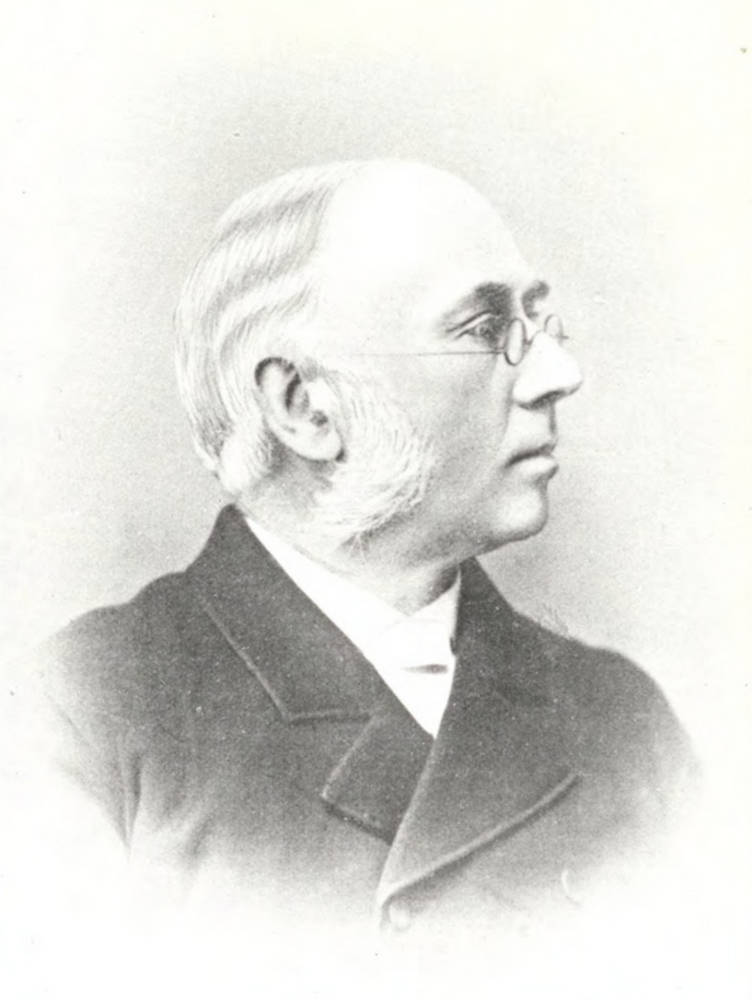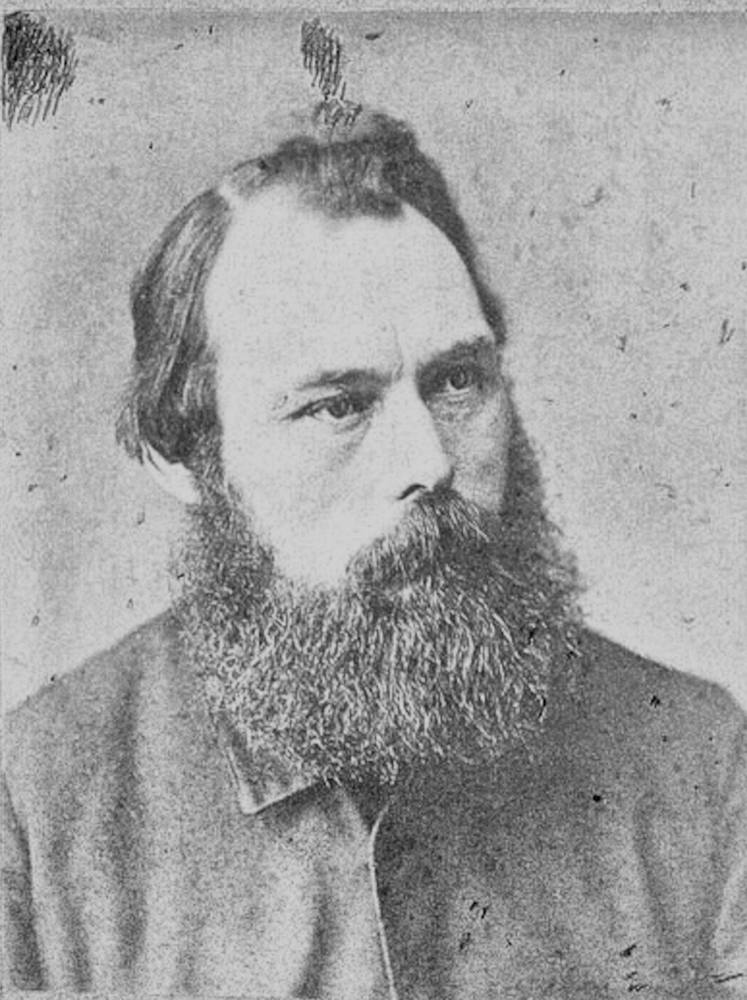
he intellectual challenges common to Protestant Christianity in both Europe and America in the latter part of the nineteenth century did not leave Wales untouched. Although Nonconformist culture remained wedded to biblical norms, scientific changes raised questions concerning traditional notions of biblical authority, while advances in the natural sciences, geology initially and then biology, encouraged scholars and teachers to seek a reconciliation between the old faith and an emerging intellectual consensus. The latest findings in geology were relayed to a keenly interested public in the ten-volume Gwyddoniadur Cymreig (“The Welsh Encyclopaedia”) (1854-79), while in a series of widely-read journal articles in 1872, John Peter (1833-77), tutor at the Independent College at Bala, sought not only to explain Charles Darwin’s evolutionary theories to an inquisitive Welsh readership, but to advocate their compatibility with biblical thought (Morgan 2021 267-73). By the 1880s this view had been quietly accepted by most commentators, and the concept of evolution had been absorbed, apparently painlessly, into traditional arguments supporting God’s providential design. As long as God was affirmed as creator and Lord, the means of creation (including that of humankind) could be left open.
By the closing decade of the century popular Welsh culture, though still underpinned by Nonconformist convictions, was being confronted by a range of problems: the growing influence of secularized English-language thought, increasing social mobility, the influence of sports, entertainments and pastimes hitherto deemed inimical to the puritan ethos, the rise of the socialist cause and the Labour movement, and the intellectual challenge to Christianity per se. The leading Nonconformist intellectual of the latter part of the nineteenth century was Thomas Charles Edwards (1837-1900), great-grandson of Thomas Charles of Bala and son of Lewis Edwards (1809-87), Wales’s leading theologian of mid-century. “In our fathers’ days,” he told the General Assembly of the Presbyterian Church of Wales in 1888, “it could be taken for granted that theology was the abiding concern of a huge swath of the Welsh lay folk, but can that be said of today? Now it is politics or scientific theory, and is it not a fact that our young men not only have no theology but have no appetite for it at all?” “In the present condition of things in Wales,” he informed the Pan-Presbyterian Council in London in that same year, “you have a people actually weary of contending systems, keenly alive at the same time to the fascination of new ideas, political and scientific, and, for this reason, in danger of drifting away from theological truth altogether.”



Left: Thomas Charles Edwards. From Thomas Charles Edwards by D. D. Williams (1921). Middle: Louis Williams from Lewis Edwards Bywyd a llythyrau y diweddar Barch. by Lewis Edwards by W. T. Owen . Right: John Peter (Ioan Pedr).
It was not that the gospel was failing to be preached. The basic soundness of the evangelical pulpit could not be faulted. What was new was that the listeners, still active in their chapels, were becoming more and more sceptical as to the reality of divine truth. “In our age agnosticism has come to the front as a conscious phase of the human intellect and teaches our young men not that this or that solution to the problem is fallacious ... but that the problem itself need not be solved either way” (qtd in Morgan 2021 278-80). Theology itself was changing, and even the benign or liberalized Calvinism which had become the mid-Victorian norm was being challenged by an increasingly potent philosophical Idealism. A theology of atonement was being superseded by an immanentist doctrine which harmonized human potential with the divine. In point of fact, God’s very deity was being eclipsed.
By the end of Victoria’s reign retained its flourishing appearance and as the new century dawned, optimism was still the order of the day. Writing in 1900, the Baptist minister David Powell observed:
There is good reason to believe that the sun will yet shine brighter on our land, and her religious life will show forth even more glory during the twentieth century than ever she did during the nineteenth. We can look forward with confidence to the even greater success of the Kingdom of God in tomorrow’s Wales. [qtd in Morgan 2021 305]
Alas, it was not to be. The Great War of 1914-18, the economic dislocation of the inter-war years and progressive secularization thereafter would hit Welsh Christianity hard. "Even when Victorian devotion appeared to be at its peak," wrote Glanmor Williams, doyen of twentieth-century Welsh social historians
its condition was hollower and more brittle than might have been supposed on the basis of external appearances. Looking back on it, we can now see that it hardly possessed the inner vitality and substance that were needed to withstand the shocks and strains of changing conditions in the twentieth century. [68]
Nevertheless, throughout the nineteenth century and the Victorian period Wales was renowned for its chapel culture and thriving Christian witness. For some of us at least, such exceptional verve inspires admiration even now.
Links to Related Material about Protestant Nonconformity in Victorian Wales
Bibilography
Bassett, T. M. The Welsh Baptists. Swansea: Ilston Press, 1977.
Carwardine, Richard. "The Welsh Evangelical Community and 'Finney’s Revival.’" The Journal of Ecclesiastical History 29 (1978): 463-80.
Davies, Pennar. Episodes in the History of Brecknockshire Dissent. Brecon: the Brecknockshire Society, 1959.
Doe, Norman, Ed. A New History of the Church in Wales. Cambridge: Cambridge University Press, 2020.
Griffith, W. P. “'Preaching second to no other under the sun:' Edward Matthews, the Nonconformist pulpit and Welsh identity during the mid-nineteenth century," in Religion and National Identity: Wales and Scotland, c. 1700-2000. Ed. Robert Pope. Cardiff: University of Wales Press, 2001. 61-83.
Griffiths, Rhidian. "Songs of Praises," in The History of Welsh Calvinistic Methodism, III: Growth and Consolidation (c. 1814-1914). Ed. J. Gwynfor Jones. Cardiff: Presbyterian Church of Wales, 2013. 139-49.
Jenkins, Geraint H. The Foundations of Modern Wales, 1660-1780. Oxford: Clarendon Press, 1986.
Jones, David Ceri, Boyd S. Schlenther and Eryn M. White. The Elect Methodists: Calvinistic Methodism in England and Wales, 1735-1811. Cardiff: University of Wales Press, 2012.
Jones, Ieuan Gwynedd and David Williams, Eds. The Religious Census of 1851: A Calendar of the Returns relating to Wales, Vol. 1: South Wales. Cardiff: University of Wales Press, 1976.
Jones, R. Tudur. Congregationalism in Wales. Cardiff: University of Wales Press, 2004.
Lionel Madden, Ed. Methodism in Wales: A Short History of the Wesley Tradition. Llandudno: Welsh Methodist Conference, 2003.
Morgan, D. Densil. "'Smoke, fire and light”: Baptists and the revitalization of Welsh Dissent," The Baptist Quarterly 32 (1988): 224-32.
Morgan, D. Densil. "Christmas Evans and the birth of Nonconformist Wales," in Wales and the World: Historical Perspectives on Welsh Religion and Identity. Cardiff: University of Wales Press, 2008. 17-30.
Morgan, D. Densil. ‘Thomas Jones of Denbigh (1756-1820) and the ordination of 1811’, The Welsh Journal of Religious History 6 (2011): 19-30.
Morgan, D. Densil. The Span of the Cross: Christian Religion and Society in Wales, 1914-2000. 2nd ed. Cardiff: University of Wales Press, 2011.
Morgan, D. Densil. Theologia Cambrensis: Protestant Religion and Theology in Wales, Vol 2: The Long Nineteenth Century, 1760-1900. Cardiff: University of Wales Press, 2021.
Henry Richard, Letters and Essays on Wales (1866). 2nd ed. London: James Clarke, 1884.
Gomer M. Roberts, Ed. Hanes Methodistiaeth Galfinaidd Cymru (‘A History of Welsh Calvinistic Methodism’). Vol. 2. Caernarfon: Gwasg Pantycelyn, 1978.
Tudur, Geraint. Howell Harris: From Conversion to Separation, 1735-50. Cardiff: University of Wales Press, 1998.
White, Eryn M. "'I will once more shake the heavens:' The 1762 Revival in Wales," in Revival and Resurgence in Christian History. Eds. Kate Cooper and Jeremy Gregory. Woodbridge: The Boydell Press, 2008. 154-63.
Glanmor Williams, "Fire on Cambria’s Altar," in The Welsh and their Religion: Historical Essays. Cardiff: University of Wales Press, 1991. 1-72.
Last modified 18 August 2022